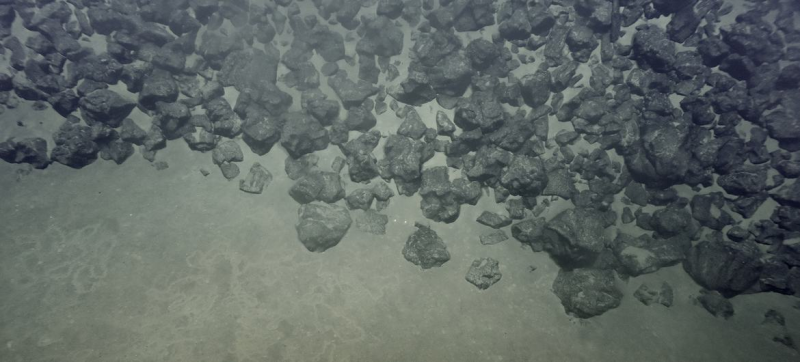- India Sees 9% Drop in Foreign Tourists as Bangladesh Visits Plunge |
- Dhaka Urges Restraint in Pakistan-Afghan War |
- Guterres Urges Action on Safe Migration Pact |
- OpenAI Raises $110B in Amazon-Led Funding |
- Puppet show enchants Children as Boi Mela comes alive on day 2 |
Deep Sea Must Not Become ‘Wild West’ of Mineral Exploitation

The ocean floor is home to highly sought after rare earth minerals, from cobalt to zinc.
Nations are pursuing underwater exploration for highly sought-after rare earth minerals, but the head of the UN’s International Seabed Authority (ISA) said the deep sea belongs to no single country or corporation as efforts are underway to ensure this rich resource does not become “the Wild West” of exploitation.
Marking its 30th anniversary, ISA is the world’s authority on the deep sea beyond national jurisdiction. Washington may have passed an order on deep-sea licensing in international waters earlier this year, but the authority’s chief, Leticia Carvalho, said the United States, which is not an ISA member, “is going at it alone.”
“The rest of the world is united and cohesive and all behind the rule of law and the International Seabed Authority,” Ms. Carvalho told UN News. “ISA is a superpower. We have all the knowledge, the ability given by law, and the mandate.”
Indeed, under international law, the deep seabed beyond national jurisdiction belongs to no single nation, Ms. Carvalho said, inviting the United States to join ISA.
To address these concerns, ISA has been drafting a mining code to ensure the deep sea remains protected and does not turn into the “Wild West” of exploitation, she added.
Rare minerals needed to meet demands for producing tech items—from batteries to solar panels—have driven interest in the deep sea and what it offers. From cobalt to zinc, a plethora of rare earth minerals have been observed through ocean floor explorations.
ISA has issued 31 contracts for mineral exploration to 21 firms from 20 countries as of 2024, according to the UN’s World Economic Situation and Prospects Report 2025. While commercial mining in international waters has not yet commenced—pending finalization of an international code for deep-sea mining by ISA—countries can pursue deep-sea mining within their own territorial waters or “exclusive economic zones.”
Even after the international code is in place, those engaged in deep-sea mining will continue to face major challenges due to high capital requirements and operational costs relative to conventional mining, along with enormous technical uncertainties associated with the unique problems of mining on the ocean floor, according to the UN report.
UN Secretary-General António Guterres said the international seabed is “the common heritage of humankind, a principle enshrined in the UN Convention on the Law of the Sea, which must continue to guide us.”
“We must bring together our global efforts in climate action, biodiversity preservation, and marine protection,” he said in a message marking ISA’s anniversary, commending its commitment to finding balanced and effective solutions. “The deep ocean remains one of our last frontiers. It holds great promise but also requires great caution.”
For 30 years, the authority has helped protect this shared realm through peaceful, sustainable, and inclusive governance. Today, it is navigating complex challenges with care and clarity, he said, emphasizing that “as we mark this milestone, let us advance cooperation grounded in science, and keep working together to safeguard the ocean for the benefit of all people, everywhere.”
In addition to progress on a draft mining code at its ongoing annual session at its headquarters in Kingston, Jamaica, ISA launched its Deep-Sea Biobank last month in a bid to preserve and share knowledge.
The initiative aims to collect and preserve samples from the ocean floor that will benefit all nations, especially developing countries, Ms. Carvalho said, adding that the goal is to study minerals, exploration and exploitation potential, and also to preserve and study biodiversity and genetics.
“The future that I see is we need to really take care, cherish, and nurture the deep sea,” Ms. Carvalho said. “The future of ISA is stronger, enhanced, wider, and wiser. We will know much more than we know now.”

